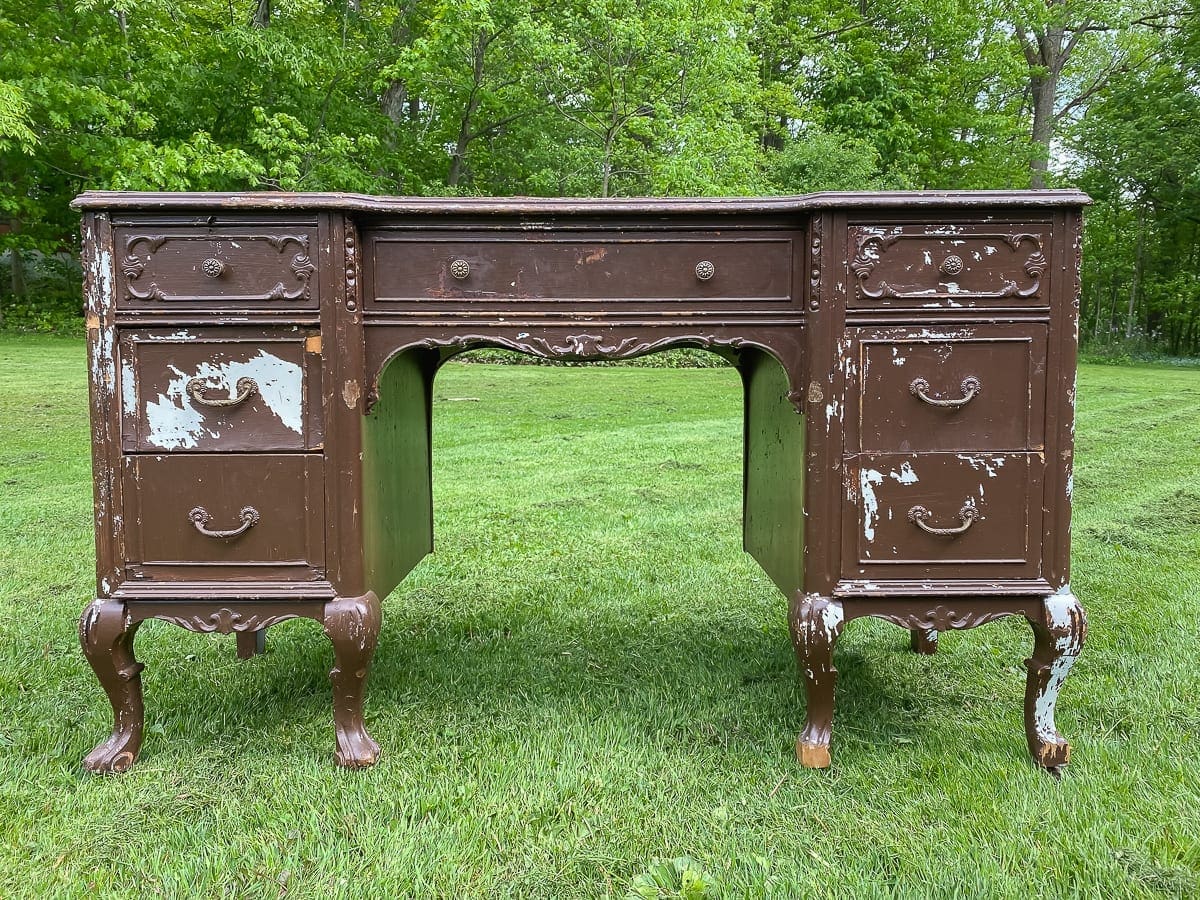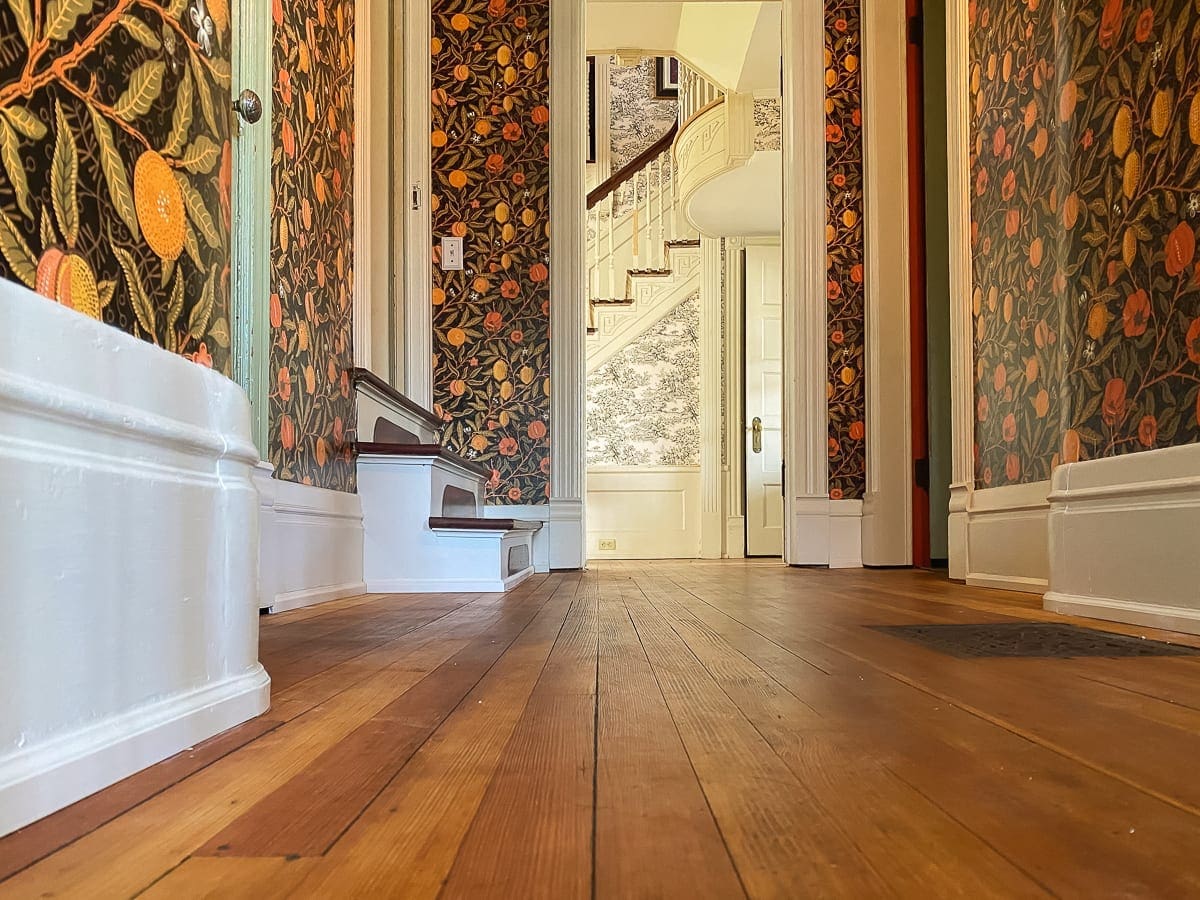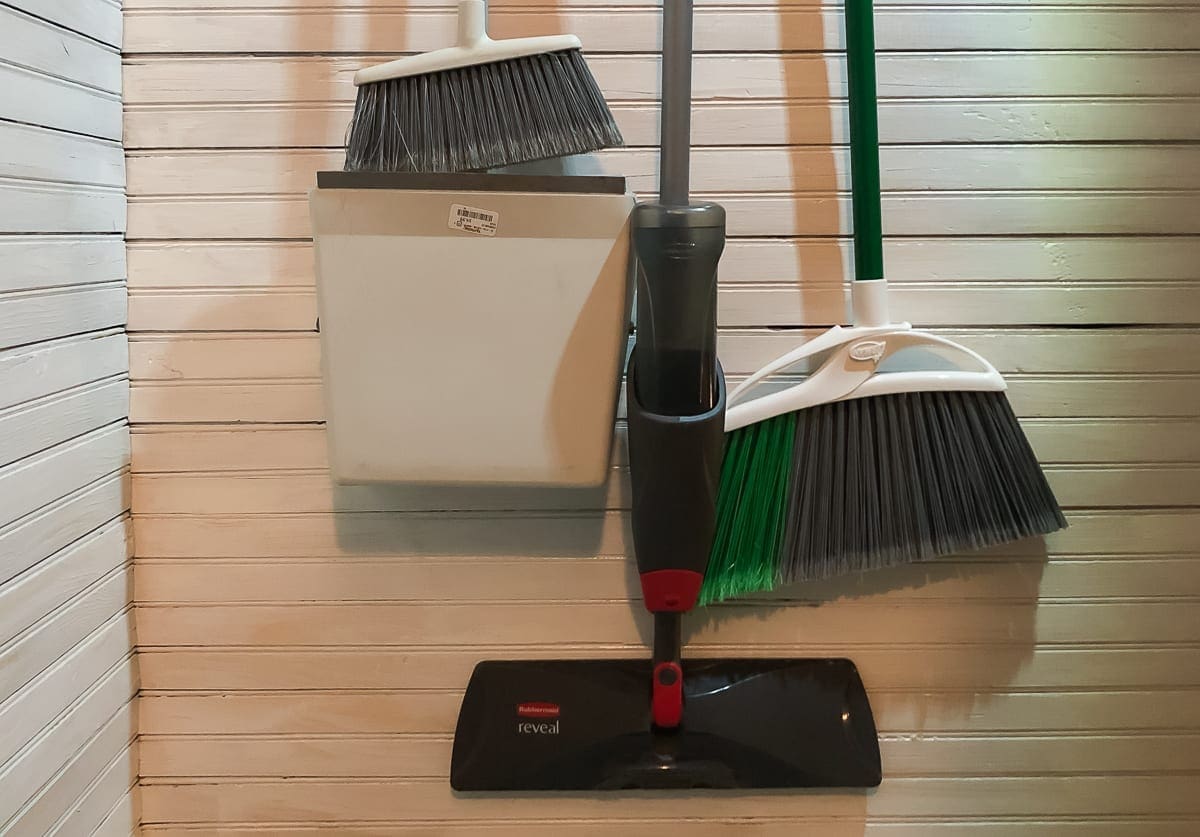Repairing the dumpster desk that M. and I brought home a few weeks ago is going more slowly than I hoped. At first glance, we knew it was going to need a lot of work to bring it back to life. The veneer was chipped, the paint was peeling, and previous repairs were well-intentioned but ineffective. What we did not realize right away was that we would have to build new feet with Abatron WoodEpox and LiquidWood. Someone had amputated the toes from the feet on one side.
Edited 7/1/20: Thanks to a helpful reader, I’ve learned that the toes on this style of furniture were always glued to the foot. Therefore, they are missing because of glue failure, not an amputation, thank goodness!

They actually cut them off on all four feet, but I found one set of missing toes in the desk drawer. I used a little wood glue to stick them back in place. When I was making that repair, I realized that the intact foot had been glued back together too. If I had noticed earlier, we would have looked for the missing toes on the ground where we found the desk. Unfortunately, we no longer had that option, so I rebuilt the feet with Abatron LiquidWood and WoodEpox instead. I created a video to explain the process.
You may watch it below or click through to watch it directly on YouTube.
Supplies
This post contains affiliate links.
- Abatron wood restoration kit – The components of this kit are sold separately in larger quantities for bigger projects. For first-timers, I recommend this small kit because it has everything you need to familiarize yourself with the products.
- Rubbing alcohol
- Rubber gloves (one pair of plastic gloves is included in the Abatron kit)
- Various carving and smoothing tools – I ended up using only my hands, a small putty knife, and cotton swabs for this project.


This box includes LiquidWood parts A & B, WoodEpox parts A & B, a plastic putty knife, plastic gloves, a squeeze bottle, and a wooden stick.
Using Abatron WoodEpox and LiquidWood: Sculpting the Toes
Although WoodEpox does adhere to flat surfaces, I added two screws to the feet for extra durability. WoodEpox bonds with metal too.

Next, I mixed the components of the LiquidWood and WoodEpox according to the directions. The Abatron system is very forgiving and easy to use. The measurements should be reasonably accurate, but they do not have to be perfect. That is one of the reasons why I like it so much.
To build the new toes, I spread a layer of LiquidWood on the flat sections.

Then, I began to sculpt the new foot. I focused on the shape and proportions of the existing foot on the other side.


I used a cotton swab dipped in rubbing alcohol to carve out the details.

For the final touches, I dipped my fingers in the rubbing alcohol and smoothed all of the surfaces.

WoodEpox sands like a dream, but it is easier and less wasteful to smooth it during the building stage. It is best to fine-tune with sandpaper rather than rely on it to do the work.
Tip: WoodEpox gets sticky when you work with it. The rubbing alcohol the prevents tools and gloves from pulling and dragging through it. LiquidWood serves the same function, but rubbing alcohol is less expensive. Rubbing alcohol also works well for clean-up.
Before I paint the desk, I will give the new toes a once over with my favorite sanding sticks to remove rough spots. My daughter’s plan is a green desk with gold feet. It will certainly be one-of-a-kind.

Additional Information
If you want to use LiquidWood and WoodEpox to repair a piece of unpainted furniture, Abatron sells colored pigments that you can mix into the WoodEpox. Stain is also a possibility, but it is finicky, and the outcome is not always good. Using stain is more like painting. There is a lot of artistry involved in making the patch less noticeable. So, be sure to practice first.
Also, instead of freehand sculpting, you could make a mold. My daughter and I tried with Plaster of Paris, and it failed miserably. However, it made for a funny mother/daughter bonding moment. Picture us running back and forth, bumping into each other trying to cast the foot while the plaster hardened in seconds: “More water! More plaster! Hurry! More water! More plaster!” If I ever need to make a mold again, I’ll try a silicone kit instead.
Next up: Priming and painting this underdog of a dumpster desk.
If you have any questions, please let me know if the comments.







2 Comments
Brenda
I’m impressed!!
Stacy
Thank you, Brenda. 🙂